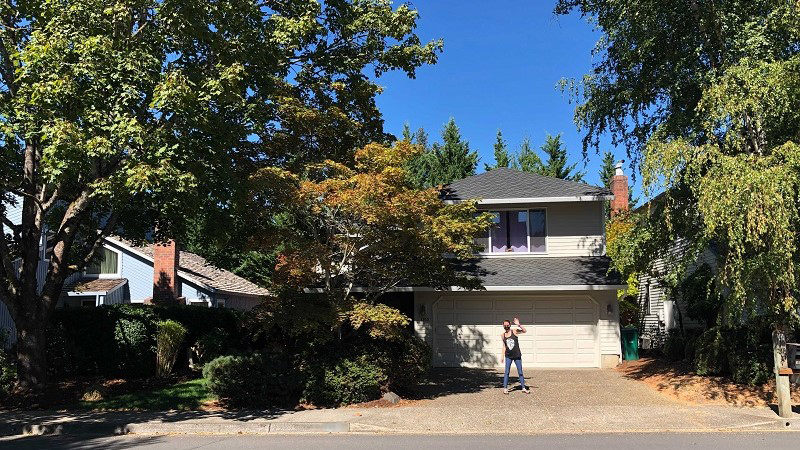Until the vaccine became widely distributed, it felt like we were living life from a distance. We got to know new neighbors on our street from a distance. We made people smile with window art from a distance. The kids even maintained their friendships from a distance using Zoom and Google Classroom. They were taught and entertained, and they learned to mute and unmute themselves (if only they could do that in real life too). However, we quickly found out some things just aren’t the same from a distance. As part of my job as a rabbi, making physical contact with mourners and holding them in their time of need was one of those things. For the kids, going to the playground behind our house (because what fun was it to just stare at the playground equipment) was one of those things.

This week we read the penultimate Torah portion, Parshat Ha’azinu, which has the special honor of being the last section of Torah read on a Shabbat morning. Parshat Ha’azinu is a poem which warns of the negative behavior of the Israelites and explains the blessings that will befall them with the good behavior they are capable of. The text ends with Moses ascending the mountain into the clouds as he takes his leave of the Israelite nation. This parshah is the link between generations, between new and old leadership, and between living on earth (in the land of Israel), and living with God (on top of the mountain in the heavens).
This section of text ends with Moses standing on the mountain and God reminding him, “You may view the land from a distance, but you shall not enter it, the land that I am giving to the Israelite people.” In essence, Moses is much like my children during our “stay home, stay safe” order. He is standing on the edge of the playground, the place he wants to go the most, and being told he can look but not touch. But it’s in this very moment that Moses shows his leadership. He doesn’t go into the land. He doesn’t have a tantrum. He turns to the people in the next and final section of the Torah and simply offers up blessings.
Why did Moses need to see the Promised Land at all? We’re told it was a different generation that entered anyway, so wouldn’t it have made more sense and been much easier for Moses if he had died before being able to see what he was missing? Sometimes I can’t even have certain foods in the house because even just seeing them in the pantry is too much of a temptation. I can’t imagine what it must have felt like to be Moses and not be able to go into the Promised Land after all this time leading the people there.
Being a leader sometimes means making difficult decisions even when easy decisions are staring you in the face. It means taking a step back and putting some distance between you and something you want deeply because it will benefit the greater good. I’m certain it wasn’t easy for him, but Moses trusted in God and modeled the behavior of what it means to move forward. We won’t be able to fully enjoy the world we leave for our grandchildren and our great-grandchildren either, but it’s our responsibility to lead them to it and leave it in their hands.



